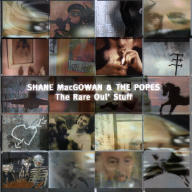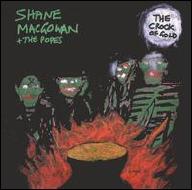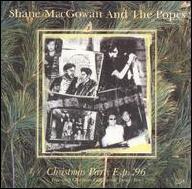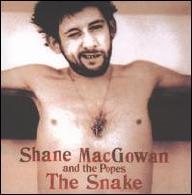When the Chainsaws soon split as well, MacGowan and Stacy formed the Pogues -- originally dubbed Pogue Mahone, Gaelic for "kiss my ass" -- along with accordionist James Fearnley, bassist Cait O'Riordan, guitarist Jem Finer, and drummer Andrew Rankin. Hot-wiring traditional Irish music with the energy and passion of punk, the Pogues quickly developed into one of the most respected and colorful bands of their era, scoring a number of U.K. hits including A Pair of Brown Eyes and Fairytale of New York and recording such superb LPs as 1985's Elvis Costello-produced Rum Sodomy the Lash and 1988's If I Should Fall from Grace with God. However, as stories of MacGowan's voracious appetite for alcohol and drugs swelled to mythic proportions, he grew increasingly unreliable, often missing live performances (including a series of 1988 dates opening for Bob Dylan). By the fall of 1991, the other Pogues had finally had enough, and he was dismissed from the band. As MacGowan's drinking problem worsened, many feared for his life; apart from a 1992 duet with Nick Cave on What a Wonderful World, he was largely silent for several years, making only the occasional drunken concert or television appearance.
In 1994, however, he silenced critics by pulling himself together to form a new band, the Popes; after making a fitting St. Patrick's Day debut performance at a London pub, the group -- which also included guitarist Paul McGuinness, bassist Bernie France, drummer Danny Pope, tenor banjoist Tom McAnimal, guitarist Kieran Mo O'Hagan, and whistle player Colm O'Maonlai -- entered the studio to begin recording its first LP, dubbed The Snake. Haunted, a gorgeous duet with Sinéad O'Connor, later became a minor hit; MacGowan's follow-up, The Crock of Gold, appeared in 1997. ~ Jason Ankeny, Rovi


















